Biography
Vadim Sergeevich Shefner was an outstanding Soviet writer. He knew how to write everything - poetry, classic prose, fiction, was the path of the front journalist. Through the creativity of Shefner, a native of St. Petersburg, the red thread is the image of the city in which he was born, defended during the war years and died.Childhood and youth
Vadim Shefner was born on January 12, 1915. The biography began in Sanya, along the way from Kronstadt to Petrograd - Mother was taken to the maternity hospital, but did not have time. Grandfather Vadim Sergeevich, Alexey Karlovich Shefner, was the Admiral of Fleet and the founder of the port of Vladivostok, the Far Eastern Cape and Street in Vladivostok was named.
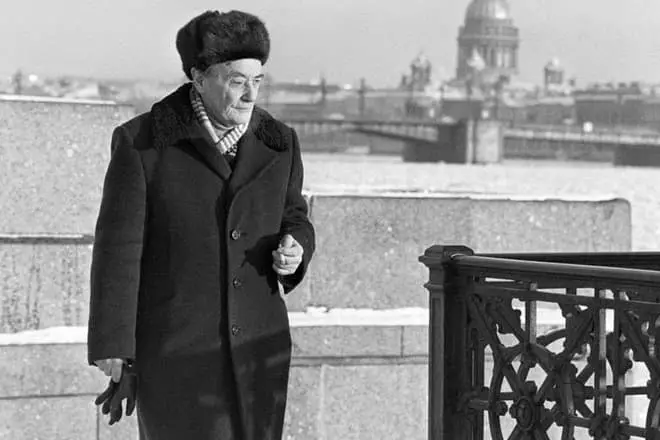
Sergey Alekseevich Shefner, Father, was a infantryman, a graduate of the Pazhskoy Corps, then - an officer of the royal army. When the revolution was killed in the country, Sergei Shefner became a military specialist in the Red Army. Grandfather, Evgenia Vladimirovna, Lindstrem, was Vice Admiral. Shefner's mother was Lutheran, the Father - Orthodox, the boy was also baptized in the Orthodox Church.
Childhood Vadim spent on the sixth line of the Vasilyevsky Island, one of the most beautiful streets of the city. When, after the revolution in Petrograd, there were interruptions with products, Evgenia Vladimirovna took the Son to Nian, to the village of Tver province. About this time the poet almost remembered nothing - only the Russian oven and the comfort of horses.
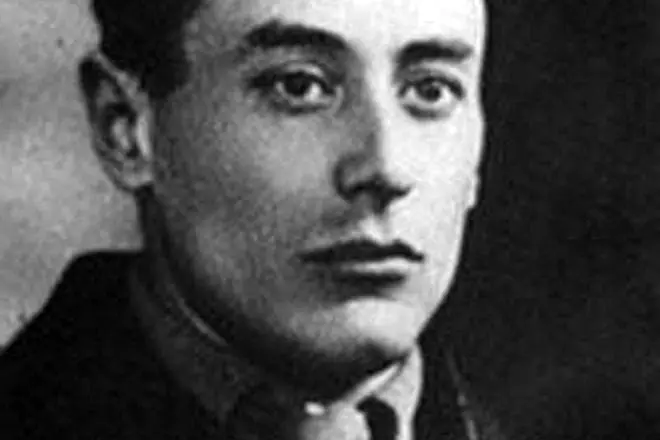
In 1921, the mother and her mother left for the old Russu, where the father of Shefner served. When Sergey Alekseevich died from tuberculosis, a boy lived in an orphanage for some time in the orphanage - Mother got there to work in a teacher. In Petrograd, who has already become a little Leningrad, the family returned only in 1924.
Mom Vadim paid a lot of time to read, knew the huge number of poems. Love for the artistic word Poet, in his own admission, inherited from her. Although in childhood he did not work in serious poetry - instead, Vadim wrote hooligan poems, and in the 6th grade even wrote a song of a scab cutting.
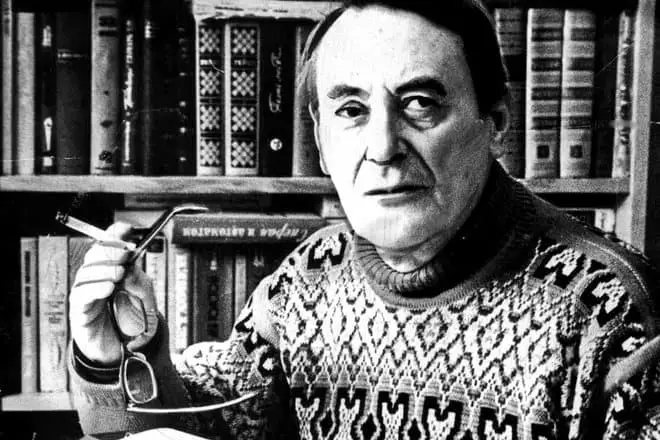
After graduating from school, Chefner did not dare to enter the university - did not have enough knowledge in mathematics, to which the future poet had no ability. Therefore, the young man decided to receive education according to the FMU system, factory apprenticeship. Such students were jokingly called "Fabzians".
Having finished learning in the ceramic group of the plant. Mendeleeva, Vadim settled on the plant "Proletary" by the Kochghar for the firing of the porcelain and then began to write the first serious poems. To higher education, the poet was reached only in 1935, when he entered the University of Leningrad at Rabafak. Before the war, the young man managed to change a lot of jobs: he taught the physical education, worked in the foundry shop, brought bricks at the construction site, issued books in the library.
Poetry
The first publication Vadim Shefner took place in 1933 - one of his poems was published in the factory multi-line periodical. During his studies at the University, the University of Junior attended the literary group under the newspaper "Change", was a member of the "Young Association" of the Writers' Union in Leningrad.
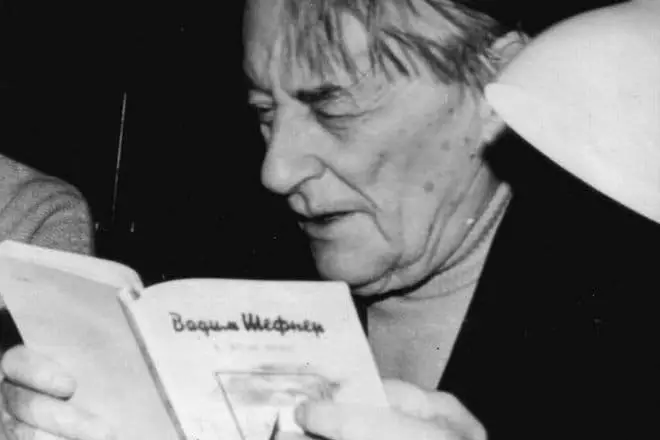
Regular publications began in 1936 - first in newspapers, then in solid magazines. After admission to the Union of Writers in 1940, the first independent collection of poems Vadim Shefner was published - "Bright Coast".
When the war began, there was no poet for a long time to poems. He served in the part, defended by Leningrad, although before the war had a "white ticket" because of blindness on one eye.
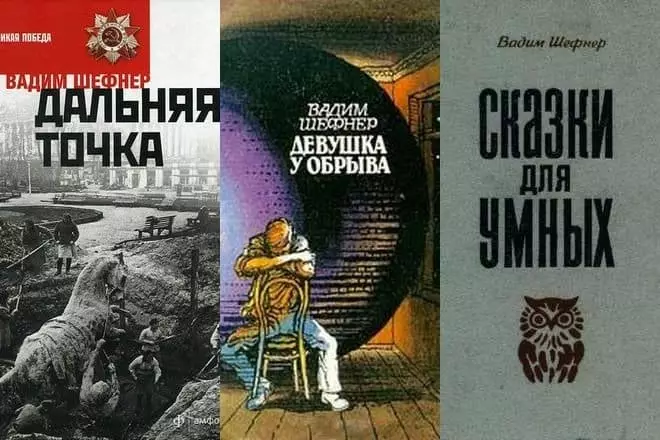
Since the service in providing an aerodrome did not mean direct combat interaction, the nutrition rate was cut down: in November, the ordinary shefner received 300 g of bread per day according to the blockade norm. When registering frosts of the first blockade winter, it led to serious exhaustion. Later, his friend Viktor Fedotov will be mentioned in a half-way form in a half-way form in a collection of "Poems from Lachta
"The rally of the Music is prudent,
In the soul rearing yourself
Poet Lyrical Shefner.
Sparrow boiled in the dugout. "
The inspiration immediately returned to the poet only after the hospital, in 1942, when Vadim Sergeevich appointed an employee of the Army newspaper "Victory Banner". Working with the word gave the push of poetic creativity, and in the end the second book, "defense," reached in Leningrad 1943, in the midst of the blockade.
After the end of the war, Shexef was published a lot, the books were published regularly. In his work, both poems and prose were present. Vadim Sergeyevich's poetry was very diverse - from short lyrical sketches like "mid-March" to idealistic philosophy - the "Word" poem is a vivid example of this style.
"In the word you can kill, the word can be saved,
In a word, you can hold the regiments.
In a word, you can sell, and betray, and buy,
The word can be in a separating lead to pour. "
These lines written in 1956 are primarily similar to the manifesto poet, the Declaration of Own Relations to the Word in any of its manifestation.
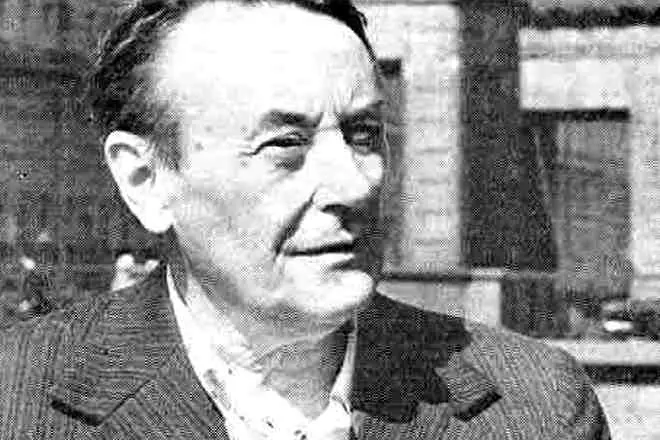
Despite the military atheism of the USSR, Shefner was not afraid to raise biblical themes in verses - it brightly illustrates the "Lilith" poem dedicated to the figure of Adam's first wife.
In addition to classic prose, in the late work of Vadim Sergeevich there was a place for fiction. Among the most successful works in this genre, the humanistic story of the Lachuga of the debtor can be called and the collection of short stories "Fairy Tales for Smart". In 2018, according to the "Lachuga of the debtor", the director Alexander Cott removed the mini-series.
Personal life
With his wife Catherine Grigorieva, the poet got acquainted during the war, in 1942, and in 1946 the son of Dmitry was born. Spouses lived together to the death of a woman in 2000.
In the late 1940s, difficult times came in the poet's life. During the fight against cosmopolitanism, critics attacked the poet, adopting a German name for Jewish. Vadim Sergeyevich was accused of falling, decadentism, the record of Soviet realities. Certain pressure helped support from friends, family and durability, brought up by war and blockade.
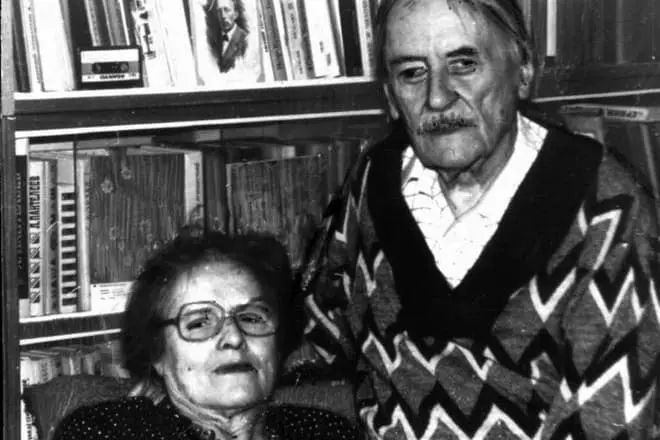
As with many people of Soviet times, Shefner had not so many photos. One of the most famous, where the poet is captured against the backdrop of bookshelves in a patterned sweater, removed from his house. Initially, the photo was planned to do during an interview with the newspaper, but the photographer was late, and eventually I had to go home to Vadim Sergeevich. So it turned out this frame: not the official, not that of personal life.
For his work, Vadim Shefner was repeatedly awarded. On his account of the USSR State Council. Gorky, Pushkin Prize and two "fantastic" - "Wanderer" and "Aelita".
Death
By the end of the life of Vadim Sergeevich almost lost sight and rarely left the house. Shefner died on January 5, 2002 in St. Petersburg at the 87th year of life, did not call the cause of the death of the press. Civilian Panhid was not conducted - this poet insisted during his lifetime.
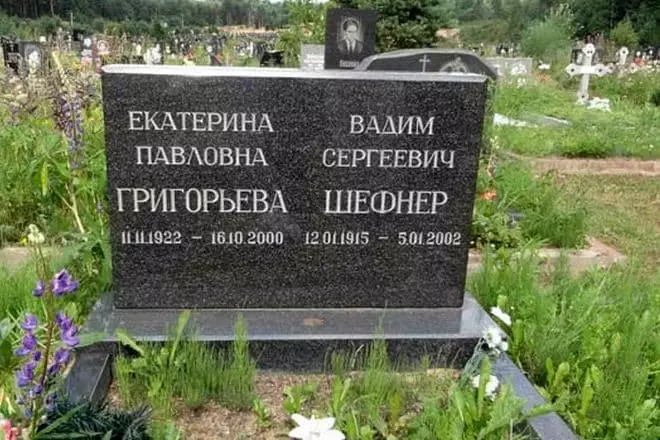
Vadim Shefner is buried in the Leningrad Region, at the Kuzmol Cemetery, next to his wife.
Bibliography
- 1940 - "Bright Shore"
- 1943 - "Protection"
- 1946 - "Suburb"
- 1958 - "Unexpected Day"
- 1967 - "Poems about Leningrad"
- 1979 - "Side of Departure"
- 1991 - "Night Swallow"
- 1994 - "Lachab of the debtor"
- 1995 - "Fairy Tales for Smart"
- 1997 - "Architecture of Fire"
- 1999 - "Velvet Way"
- 2002 - "Girl at the cliff"
